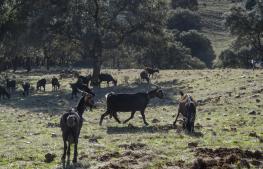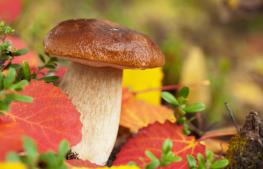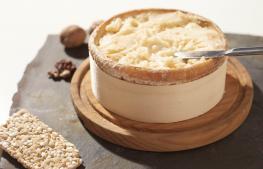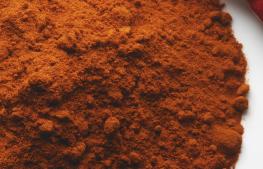Liqueurs
Jerte Picota cherries, the star
In addition to the export of the fruits, with several million cherries every year, in 1989 the Jerte Valley Cooperatives Group began to distil cherries using a process that today services as the model for production of Jerte Valley Cherry liqueur, the only one in Spain made completely using Picota cherries from this region.
On 25 March 1991, the fruit liqueur distillery was opened in a large event.
The philosophy of the process is based on three pillars: organic fermentation of the fruit, artisanal distillation in a still and no use of colouring or flavouring agents.
To make the liqueur, the cherries are washed, the stems are removed and they are crushed in a blender, without removing the stones. They are placed in a bowl, covered with a cloth and left to ferment in a cool place (not a refrigerator). After three days, a glass jar is dipped in boiling water. When it is dry, the ground cherries are poured in the liqueur. The jar is sealed hermetically and the cherries are left to macerate for two months.
The next step consists in filtering the liqueur through a cloth and pouring it into a sterilised jar. Afterwards, sugar and water mixed together, cooked for five minutes, allowed to cool and then added to the cherry liqueur. It is covered and left to macerate for another two months. Finally, the liqueur is bottled for consumption.
While kirsch, or cherry brandy, is a traditional speciality in central Europe, it is without precedent in Spain. That is why the liqueur from the Jerte Valley is even more special, given its unique characteristics, with quality that rivals central European kirsch. It is smooth on the palate, with a deep aftertaste typical of Jerte Valley cherries.
Its success has been spread to raspberry, plum and pear liqueurs and, later, to liqueurs of exceptional quality, with a range that includes cherry, plum, blackberry and raspberry.
If you like Liqueurs you will like this too...
Ibores Cheese
Extremaduran goat’s cheese has its own name: Ibores Cheese.
Mushrooms
The world of mushrooms and fungi represents a real universe in the province of Cáceres.
Torta del Casar
Torta del Casar is a natural cheese made from Merino Entrefino sheep’s milk from flocks in the geographical area of Llanos de Cáceres, Sierra de Fu
La Vera paprika
La Vera paprika has its history in the province of Cáceres thanks to Holy Roman Emperor Charles V.
More things you can find in Cáceres
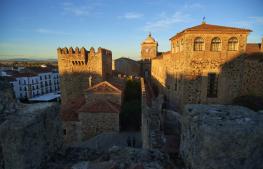
Monumental city of Cáceres
The topography plays an important role in the urban development of Cáceres, as the city stands on uneven ground, between the Sierra de la Mosca mou
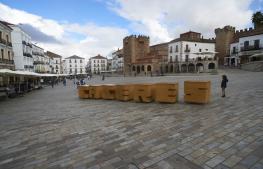
Old Town of Cáceres
The decree declaring Cáceres as a Monumental Site was published on 21 January 1949, and in 1986 UNESCO included the Old Town of Cáceres in its list
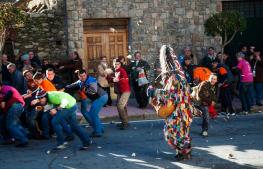
Festivals of Tourist Interest
The province of Cáceres is home to one Festival of International Tourist Interest and two festivals declared as being of National Tourist Interest.

